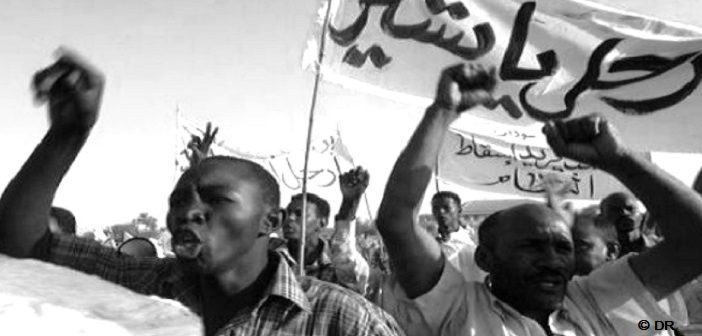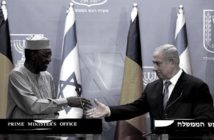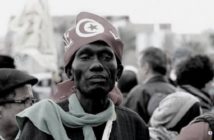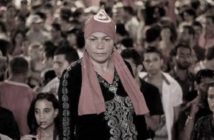The ongoing civil protests in Sudan have brought up the authoritarian regime of Khartoum into irreversible inevitable decline. However, the escalation keeps on despite the brutality force being used by regime security forces which is unlikely able to stop things from where they departed—things are completely out of control.
In his last foreign visit the embattled long-power standing President Omar Hassan Al-Bashir was seen in Damascus on Sunday December 16. A visit that has shocked his allies before enemies by an unexpected unannounced visit to a capital of long isolated regime of Bashar Al-Assad. Both repugnant regimes of Khartoum and Damascus have shared a common political victimization of their destructed countries along a gross human violations loss. Well known, the visit was on Russian jet–messages were singled. Although many analysts have believed considered this shocking visit as a way to breakthrough and the beginning of dragging the Syrian regime into its Arab orbit—this time, the initiative led a marginal Arabs country. But similarities between the two regimes are existent in political nature and conduct of annihilation of their own peoples. No matter the contradicted ideological ground between an opportunistic Islamic claimed ideology and Baathist and secular conviction.
But, inside Sudan the image of the regime is quite tarnished and the whole country undergone in the state of deterioration. For weeks, Sudanese people are suffering the lack of basic life needs, long lines in front of bakeries, fuel stations and other marketing stories in main cities. These shortcomings including the apparent collapse of national currency against the US Dollar had converted Sudanese day-to-day life into a nightmare, economic statics reports have shown that 80% of the population with poor-income of less than US $1 per day.
For almost 30 years the power-gripped Ingaz regime has been maintaining a long repressive policy against political opponents, ethnic communities, and silencing public media. All these cruelty actions have preserved the absolute power and wealth within the oligarch clique, but the rest of the citizens remain in abysmal conditions. Neither economic reforms nor political reconciliation would save the shaking regime. It is a desperate economic reality that couldn’t be adjusted in the foreseeable future. Currently there’s no other alternative persuasive plan ready to use to revive the anemic economic political system.
Now, the public unpolitical oriented uprising erupted following the harsh economic conditions in the Northern cities especially in Atbara, the historical working class city. Other major cities have involved, reports confirmed a huge of paramilitary forces have been deployed to the boiling cities to operate against the protestors. At no point the regime would as it did in the 2013 uprising use an excessive force including shoot to kill technique to mitigate the upheavals. The regime has only a tight option to have a safety exit through its experimental political maneuver and physical oppressive hand. Both options if any exist, in the moment is not likely to operate so effectively. Historically, in Sudan the governments in particular the martially ones are overthrown whether by uprising or military coup d’état from the National Capital, Khartoum City, this time the peripheral cities are going through an unprecedented civil movement.
This time of year, the Sudanese people usually prepare to celebrate their Independence Day. Indeed the Independence Day symbolizes not only the past struggle against foreigner occupation but also to enjoy freedom, bread and dignity, the slogans raised by the protesters.





